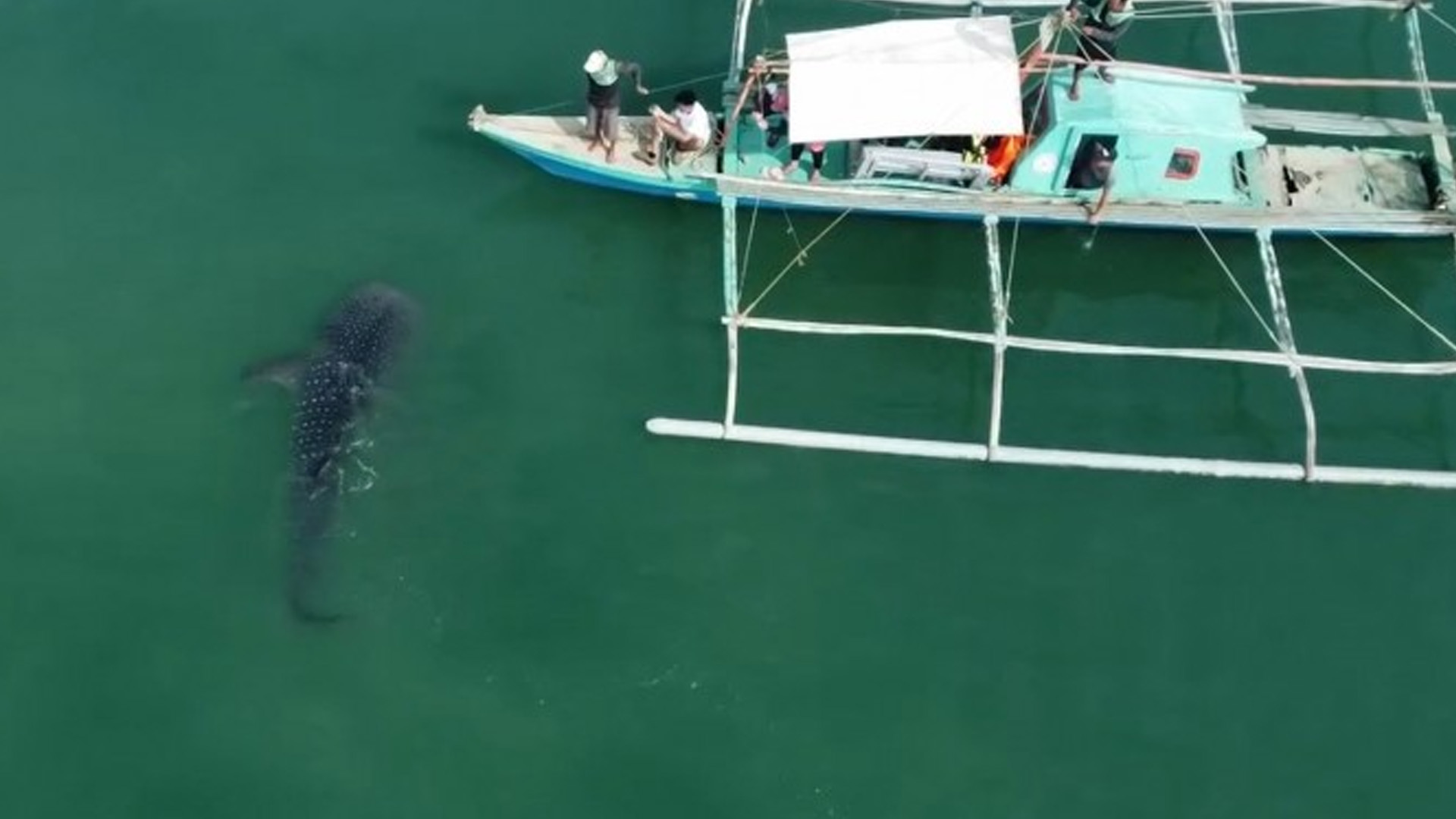Local government authorities have urged the public to help protect the whale sharks, considered an endangered species, seen in the waters of the cities of Cadiz and Sagay in the northern Negros Occidental since last week.
At least eight of what is considered the largest living fish also known as “butanding” have been spotted by fishermen, locals and tourists since August 8.
These included six of the whale sharks near the border of the neighboring towns and two along Barangay Daga in Cadiz as of Thursday.
In a statement, the Office of the City Agriculturist (OCAG) in Cadiz said since whale sharks are migratory, their presence in the municipal waters may only be to feed for a certain period, particularly with the high abundance of shrimp and other small fish in the area.
“While they are here, be informed that we should not cause them any harm. We are requesting everyone to please leave them alone at sea,” the OCAG said as it advised the public against feeding them as it might alter their migration patterns.
It noted that the whale sharks might have also been taking refuge in the calm waters brought about by the southwest monsoon or “habagat” and it is possible that “if certain conditions disfavor them, they might leave our waters and go back to their migration patterns”.
The three sub-adult whale sharks sighted in Cadiz ranged from three to four meters long, the OCAG said.
“Let us remember to respect these creatures because the sea also belongs to them. To everyone, please let us help protect these endangered ‘ocean’s gentle giants’,” it added.
In Sagay, Bantay Dagat personnel have also reminded the public not to go near or feed the whale sharks.
According to the Bureau of Fisheries and Aquatic Resources, whale sharks, despite their size are docile creatures and they do not have sharp teeth as they are filter feeders.
They are deemed “endangered” under the International Union for the Conservation of Nature and listed under the Appendix II of the Convention on International Trade in Endangered Species of Wild Fauna and Flora.
In the Philippines, which is home to the second largest whale shark population in the world, these sea creatures are protected nationally under Sections 67 and 107 of Republic Act (RA) 8550 or the Philippines Fisheries Code of 1998, as amended by RA 10654 and under Fisheries Administrative Order 193 Series of 1998. (PNA)





